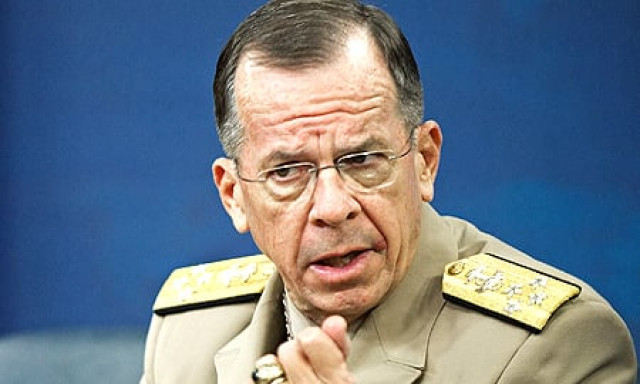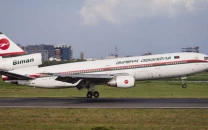Mullen fears repeat of 2008 Mumbai attacks
The US military's top-ranking officer said Thursday he feared extremists might launch another attack on India.

Speaking to reporters on board his plane bound for New Delhi, Admiral Mike Mullen praised India for showing restraint in the aftermath of the bloody November 2008 attacks that left 166 dead.
"I've worried a great deal about a repeat attack, of something like that," Mullen said.
The admiral said he wanted "to focus on making sure this doesn't happen again.”
Mullen, chairman of the US Joint Chiefs of Staff, said the attack showed how a small group of extremists could have a "strategic impact" and push two nuclear-armed powers towards a potential conflict.
"One of the things that struck me then and is still of great concern is that those terrorists could bring two countries closer (to possible conflict)," he said.
"It didn't bring them to the brink (of war) but it brought them closer," he said.
In the immediate aftermath of the Mumbai attacks, Mullen said he had conveyed his "grave concern" to Pakistan, including the leadership of its powerful ISI intelligence agency.
Asked about the intelligence service's alleged links to extremists, including those fighting NATO-led troops in Afghanistan, Mullen acknowledged disagreements with the ISI.
The United States sometimes seeks "certain clarifications" from the ISI "on why certain things are done," he said.
The Obama administration, however, needs "to stay engaged" with the intelligence service and recognises that it plays a crucial role in providing for Pakistan's security, he said.
"We differ on the specifics on how that should be done," said Mullen, who was due to head to Pakistan after his two-day stop in India.
During his visit Indian officials were expected to raise the threat posed by Pakistani-linked extremist groups.
Mullen said Lashkar-e-Taiba represented a growing danger and was part of a network of terror groups on the western Pakistani border trying to extend their reach.
"I see them starting to emerge as a larger regional to global, at least aspirational, global threat," he said.
The four-star admiral said he wanted to reaffirm a flourishing relationship with India's military, with US and Indian armed forces staging increasingly elaborate joint exercises over the past eight years.
He was due to meet the US special representative to Afghanistan and Pakistan, Richard Holbrooke, who was wrapping up talks in New Delhi on Thursday, before meeting Indian government officials.
"The whole region has a role to play" in reconciliation efforts, including India, which is more than just "an interested bystander," Mullen said.



















COMMENTS
Comments are moderated and generally will be posted if they are on-topic and not abusive.
For more information, please see our Comments FAQ